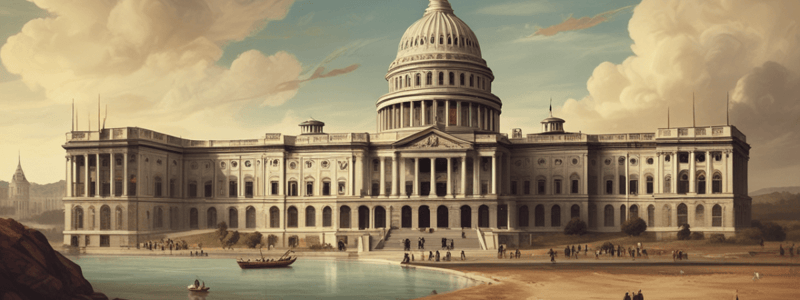Podcast
Questions and Answers
What does the term 'sovereignty' refer to?
What does the term 'sovereignty' refer to?
- The shared culture among a group of people
- The governance structure of a state
- The supreme legal authority without any higher power (correct)
- The regulation of trade among states
How does a nation differ from a state?
How does a nation differ from a state?
- A nation is defined by its governmental institutions.
- A nation lacks any shared culture or history.
- A state is primarily a cultural identity of people.
- A state includes formal territorial boundaries. (correct)
Which concept represents a collective identity among people?
Which concept represents a collective identity among people?
- State
- Sovereignty
- Government
- Nation (correct)
What can happen in the absence of sovereignty?
What can happen in the absence of sovereignty?
What does the term 'political concept' refer to in the context of a state?
What does the term 'political concept' refer to in the context of a state?
Which of the following statements about the Philippines is correct?
Which of the following statements about the Philippines is correct?
Flashcards are hidden until you start studying
Study Notes
Government and Sovereignty
- The government's function is to regulate relations among its people and with other states.
- It is the agency that determines common policies, regulates common affairs, and promotes common interests.
Sovereignty
- Sovereignty refers to the supreme and final legal authority.
- It is the highest authority above which no legal power exists.
- Without sovereignty, lawless forces could potentially destroy society.
State and Nation
- A state refers to a political entity with a government, territory, and sovereignty (internal and external).
- Example: The Philippine state includes the Philippine government, territory, and its internal and external sovereignty.
- A nation refers to a collective identity based on shared history, culture, and experiences.
- Example: The Philippine nation refers to the shared collective identity of democracy, history, and collective identity.
- Key distinction: The state is a political concept, while the nation is a cultural concept.
Studying That Suits You
Use AI to generate personalized quizzes and flashcards to suit your learning preferences.




